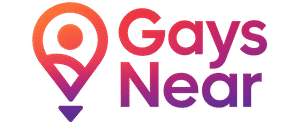Why Mental Health Support Groups Matter for Gay Kinksters
Being kinky and gay is beautiful — but it can also come with emotional baggage. Whether it’s shame, trauma, rejection, or relationship challenges, gay men in the kink community often navigate unique mental health hurdles. That’s where support groups come in: safe spaces to unpack, heal, and grow with others who truly get it.
The Intersection of Kink, Queerness, and Mental Health
Kink isn’t just a sexual preference — it’s part of how many gay men express intimacy, power, vulnerability, and identity. But traditional mental health spaces often don’t “get” kink or see it as something to fix. Add that to the stigma many queer men already face, and it becomes clear why affirming support groups are so vital. You’re not broken — but you might be carrying weight you don’t need to hold alone.
What These Groups Offer
- A nonjudgmental environment to talk about kink-related challenges
- Emotional validation from peers who’ve been there
- Guidance on navigating poly, dom/sub, or fetish dynamics healthily
- Tools to manage anxiety, body image, or trauma linked to kink expression
- Referrals to kink-aware therapists, coaches, or local resources
Types of Support Groups Available
Peer-Led Groups
Often informal, these are community-based meetups (in-person or online) where members share and support one another. Think: a circle of kinky queers talking about their week, challenges in relationships, or how to handle shame triggers.
Therapist-Facilitated Groups
Led by mental health professionals who are kink-affirming and LGBTQ+-competent. These spaces often focus on trauma recovery, communication skills, or navigating complex dynamics like 24/7 power exchange or polyamory.
Online Kink & Mental Health Forums
Places like Reddit, Discord, or FetLife offer moderated spaces to vent, ask for advice, or just feel less alone. Some may lack structure, but the sense of community can be life-saving.
Common Mental Health Struggles Among Gay Kinksters
- Internalized shame from religion, family, or past partners
- Struggles with consent boundaries and communication
- Guilt around non-monogamy or kink visibility
- Feeling “too much” or “not kinky enough”
- Emotional burnout in dom/sub roles
Real Talk: What It Feels Like Inside
“I love being submissive,” says Theo, a 29-year-old gay man from Chicago, “but I didn’t know how to ask for aftercare. I thought needing emotional support made me weak.” After joining a support group, Theo learned that many others felt the same — and that emotional needs are valid, even in the most hardcore play.
“We talk about everything,” adds Sean, a dom in an open relationship. “Power dynamics, mental health meds, breakups, even lube allergies. It’s real, it’s raw, and it’s saved my life more than once.”
The Healing Power of Being Seen
There’s something powerful about being in a room (virtual or physical) with other kinky gay men who nod as you speak. Who don’t flinch when you talk about your fetishes. Who ask, “And how are you holding that emotionally?” Support groups normalize what society often marginalizes. And that’s where healing begins.
How to Find or Start a Group
Look for Local LGBTQ+ Centers
Many cities have LGBTQ+ wellness centers offering mental health services and group support. Call or email to ask if they host kink-inclusive programming.
Join Kink-Aware Platforms
FetLife is a solid start — use the “groups” tab to search for mental health topics. You’ll find everything from leather therapy circles to dom burnout forums.
Start One Yourself
If none exist near you, consider starting a peer group. Keep it confidential, inclusive, and intentional. Use rotating topics like “navigating shame,” “emotional aftercare,” or “mental fatigue from scenes.”
What Makes a Group Safe and Effective
- Clear rules around confidentiality and consent
- Diverse representation — kink comes in all bodies, ages, and roles
- Facilitation that balances structure and emotional flow
- A vibe of mutual respect, humor, and accountability
What to Expect Your First Time
You might feel nervous. That’s okay. Share only what feels safe. Or just listen. Support groups aren’t therapy — but they’re therapeutic. Expect tears, laughs, aha moments, and the joy of realizing, “I’m not the only one.”
Need More Than a Group?
Groups are amazing, but sometimes deeper issues require professional care. Look for therapists who are openly kink-aware and LGBTQ+ competent. You deserve help that celebrates — not pathologizes — your desires.
Find Gays Who Get You
If you’re craving kinky connections with emotionally grounded men, GaysNear.com is where real queers meet. Whether you’re seeking doms who know aftercare or subs who want to talk feelings too, connection starts here.
Explore More Kink-Smart Content
Check our post on how to date gay men with similar kinks to deepen your connections both in and out of the bedroom.
Kink Without Shame: Rewriting the Script
Too many gay men grew up believing that kink is dirty, weird, or broken. Religious trauma, slut-shaming, and cultural silence create internal scripts that say: “If I like this, I must be wrong.” Support groups offer a chance to rewrite that story. To hear someone say, “You’re valid. You’re not alone. You’re enough.” And that — for many — is revolutionary.
Common Misconceptions That Support Groups Can Help Dispel
- You can’t be kinky and emotionally sensitive (you absolutely can).
- If you’re submissive, you shouldn’t express your needs (false).
- Doms don’t struggle emotionally (also false — dom burnout is real).
- If you go to a support group, you must be broken (nope — you’re proactive).
It’s Okay to Cry in a Room Full of Leather
Real healing happens when you realize your darkness doesn’t scare anyone. That you can talk about grief while wearing a harness. That you can laugh about butt plugs and then cry about a breakup — and both are welcome. Support groups offer that rare space where nothing is “too much.”
Final Thoughts: You Deserve Healing and Connection
You don’t have to choose between being kinky and being mentally well. You get to be both. Support groups for gay kinksters aren’t just about problem-solving — they’re about building community. About remembering that behind every role, every fetish, every scene… is a heart that wants to be understood.
If that’s you — welcome. You belong here.
Real Story: Healing Through Leather & Listening
Jordan, 41, joined his first kink-affirming support group after a rough breakup. “I thought I just needed a new dom,” he laughs. “But what I really needed was space to grieve, unpack my patterns, and figure out why I kept losing myself in relationships.” The group — mostly older gay kinksters — helped him slow down. “They didn’t fix me. They listened. They asked good questions. And for the first time, I didn’t feel alone in my chaos.”
How to Know If You’re Ready
- You crave deeper connection beyond play sessions.
- You feel isolated in your kink identity.
- You’ve experienced emotional overwhelm post-scene.
- You want community that sees both your desire and your humanity.
If that’s where you are, support groups might be your next brave step.
You’re Not Alone — And You Don’t Have to Fake It
Many of us learned to mask our needs to be wanted. But in a healthy queer kink support space, you get to show up messy. Raw. Unfiltered. And still be welcomed. Still be held. That’s the power of community — and it’s available to you.
Ready to meet gay men who honor your mental health and your kink? Try GaysNear.com — a safe, sexy, and affirming space to connect with others who get it.
One Last Reminder
You are not too kinky to be loved. You are not too broken to be heard. You are not too much to be held. There’s a seat for you in the circle — whether you’re a rope bunny, a leather daddy, or figuring it all out. Show up. Speak up. Heal out loud.
🧠 You Should Also Read
- How to Host a Kink-Friendly Gay Date
- Gay Emotional Aftercare: What It Is and Why It’s Sexy
- Top Fetishes Among Gay Millennials vs Gen Z
- Kink Compatibility Checklist (Print-Friendly)
- My First Gay Throuple: What No One Tells You
.webp)







